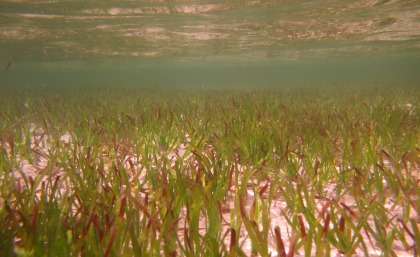Law could fail to protect vulnerable marine life

A key piece of Australian environmental legislation may not adequately protect vulnerable marine ecosystems, a University of Queensland study has concluded.
UQ TC Beirne School of Law's Dr Justine Bell said coral reefs, seagrass and mangroves might not be adequately protected under the Environmental Offsets Policy.
The policy is a component of the Environment Protection and Biodiversity Conservation Act, and was released in October 2012.
It was recently used to guide the approval of the Abbot Point Coal Terminal, and incorporates principles developed for land-based ecosystems.
Dr Bell said different principles could be required for marine environments.
"A one-size fits all environmental policy just doesn't work," she said.
"Our marine ecosystems are different to other ecosystems, and continuing to treat them this way could gravely threaten the habitats the policy is designed to protect.
"Offset programs permit the destruction of important habitats or populations under the condition that environmental rehabilitation be conducted elsewhere.
"This allows development to occur in places where it may otherwise be prohibited by environmental laws," Dr Bell said.
UQ Global Change Institute researcher Dr Megan Saunders said marine life was more sensitive to environmental change and typically difficult to rehabilitate when depleted.
"The policy needs to be amended to take these fundamental differences into account," she said.
The study highlights seagrass meadows to demonstrate where the environmental policy is failing.
Seagrass meadows provide nursery areas for commercially important species, grazing areas for iconic species such as sea turtles and dugongs, shoreline stabilisation and water filtration and are one of the most intensive carbon sinks on earth – soaking up 35 times more carbon dioxide per hectare than Amazon rainforests.
The UQ study recommends a separate policy be formulated to protect seagrass meadows, which are threatened by port development projects such as the Abbot Point coal terminal.
"Dredging not only damages seagrass directly, but it also releases sediments that obscure the light the marine plants require to grow", Dr Saunders said.
"Seagrass habitat is also harmed by pollutants delivered by run-off from land, such as fertilisers or sediments generated by land-use change."
The study includes recommendations for better protection of seagrass and marine habitats.
Provided by University of Queensland


















